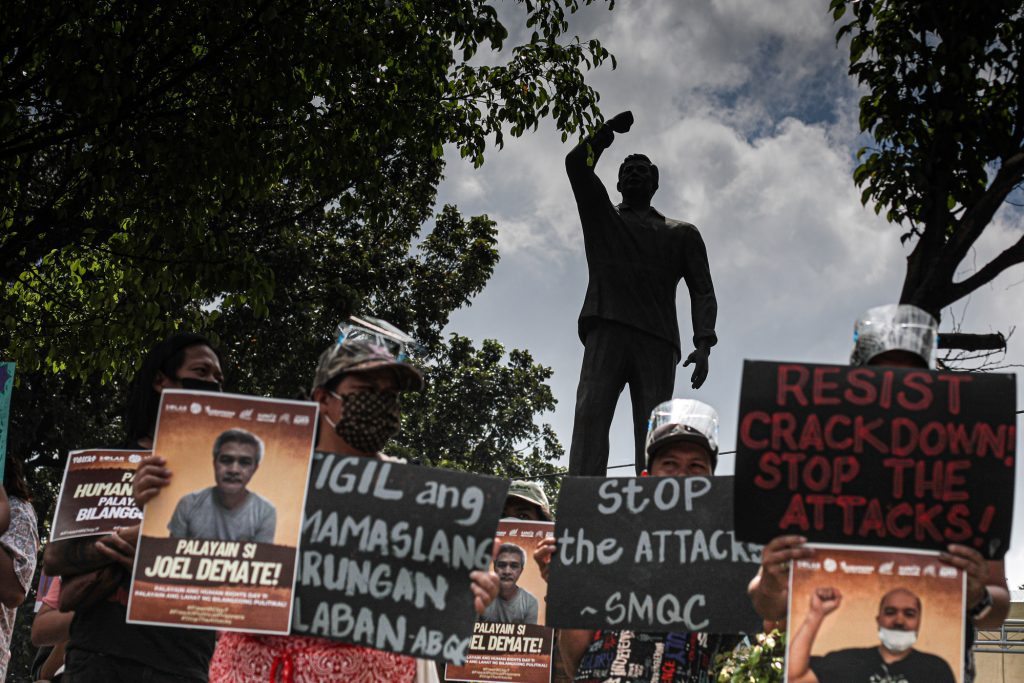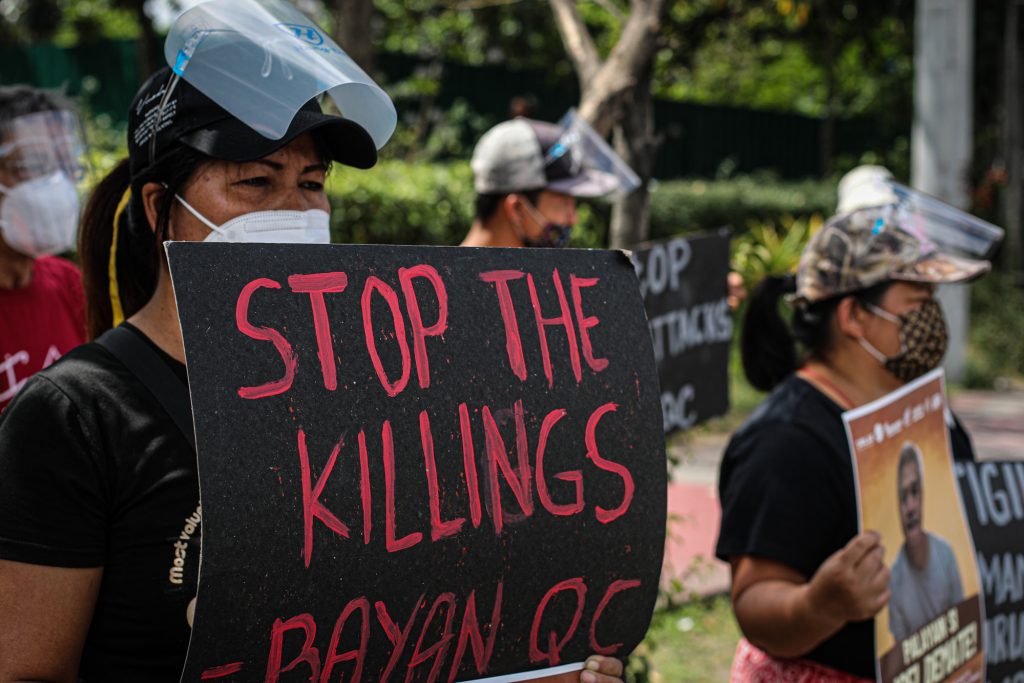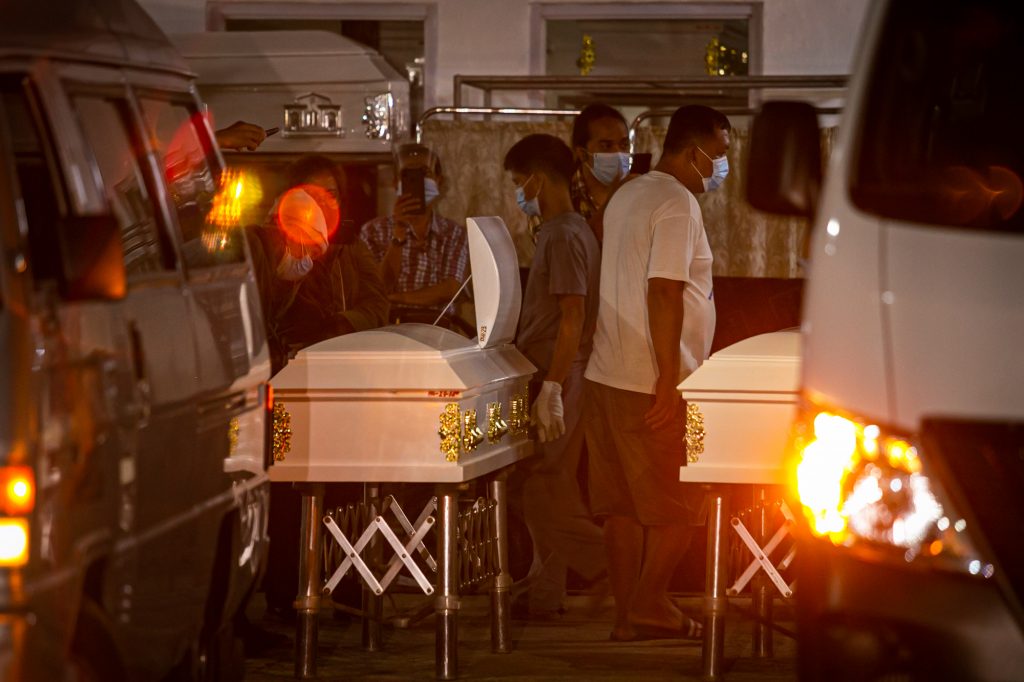
The government’s “obsession” with military action to address the country’s problems has resulted in violence and human rights violations, said the Catholic bishop of Manila.
Bishop Broderick Pabillo criticized the government’s “unnecessary use of force” to achieve its goal, especially against activists.
“Seemingly, the government is obsessed with using a military solution to address the problems of our country,” said the prelate.
“It disregards the reason for its existence—to protect the dignity and rights of its citizens towards solidarity and common good,” he added.
He said the same approach is being used to fight the illegal drugs trade that reportedly claimed thousands of lives but “did not stop” the problem.
“It even saw the entry of billions of pesos worth of drugs, with no heads rolling,” said the apostolic administrator of the Archdiocese of Manila.
“It is the same scheme being used in arresting the activists, thus, extra-judicial killing continues,” he added.
Bishop Pabillo made the comment in the wake of the killings of nine activists during police operations in provinces outside the capital Manila last Sunday, March 7.
The raids took place two days after President Rodrigo Duterte told security forces to “kill” armed communist rebels, without regard for human rights.

Speaking for the Church Labor Conference where he is co-chairperson, Bishop Pabillo said the government’s military approach always victimizes the poor and those who fight for them.
“Targeting and killing activists only exacerbates the injustices committed against the poor,” he said.
The bishop said the Church supports efforts to end insurgency but the government “should start by addressing its root causes, such as poverty, corruption and injustice”.
Bishop Gerardo Alminaza of San Carlos said those who were killed and arrested were not rebels but activists who fought for land, just wages, and human rights.
Bishop Alminaza, who also heads the Church People and Workers Solidarity, said the spate of killings and arrests are results of “relentless red-tagging” of activists.
The church leaders appealed to the Supreme Court to “fast-track” the hearings on the Anti-Terror Law “and render its ruling on its unconstitutionality.”
Bishop Alminaza said they have observed that state agents “are more emboldened to launch killing sprees” after the signing of the controversial law last year.

Remains of slain activists finally released
On Thursday, March 11, families of four of the nine slain activists finally recovered the bodies of their loved ones from state security forces who held the remains for almost fives days at a funeral parlor.
The families, with the assistance of Church and human rights groups, tried to claim the bodies earlier but authorities refused to authorize its release, claiming that they have already arranged for its burial.
The bodies were eventually released to the family and were brought to the Philippine General Hospital in Manila for an autopsy to determine the cause of death.
Lawyer Katherine Panguban, counsel of the families, said the autopsy can “give us a clear view of what really transpired” on March 7.
She said the bodies “can still show and tell us the truth behind what the police claimed as a decisive gun battle.”
“We will use forensic science to really know who is telling the truth and who is lying here because the families claim that their slain loved ones were innocent,” said Panguban.
She said that the people “who are trying to hinder us from getting the facts from the autopsy are obviously trying to hide or cover up something.”
The lawyer said the delay in the release of the bodies could have been avoided “if only the military and the police respected the rights of the families over the remains of their loved ones.”
Panguban said the families are considering the filing of appropriate criminal and administrative charges against those who “illegally detained” family members and friends inside the funeral parlor who tried to claim the bodies.
The National Task Force to End Local Communist Armed Conflict has claimed that the slain activists were members or supporters of communist rebels.
Human rights group Karapatan has recorded 396 cases of political killings from July 2016, when President Rodrigo Duterte came to power, to March 2021. – with a report from CBCP News and Mark Saludes
Source: Licas Philippines
0 Comments